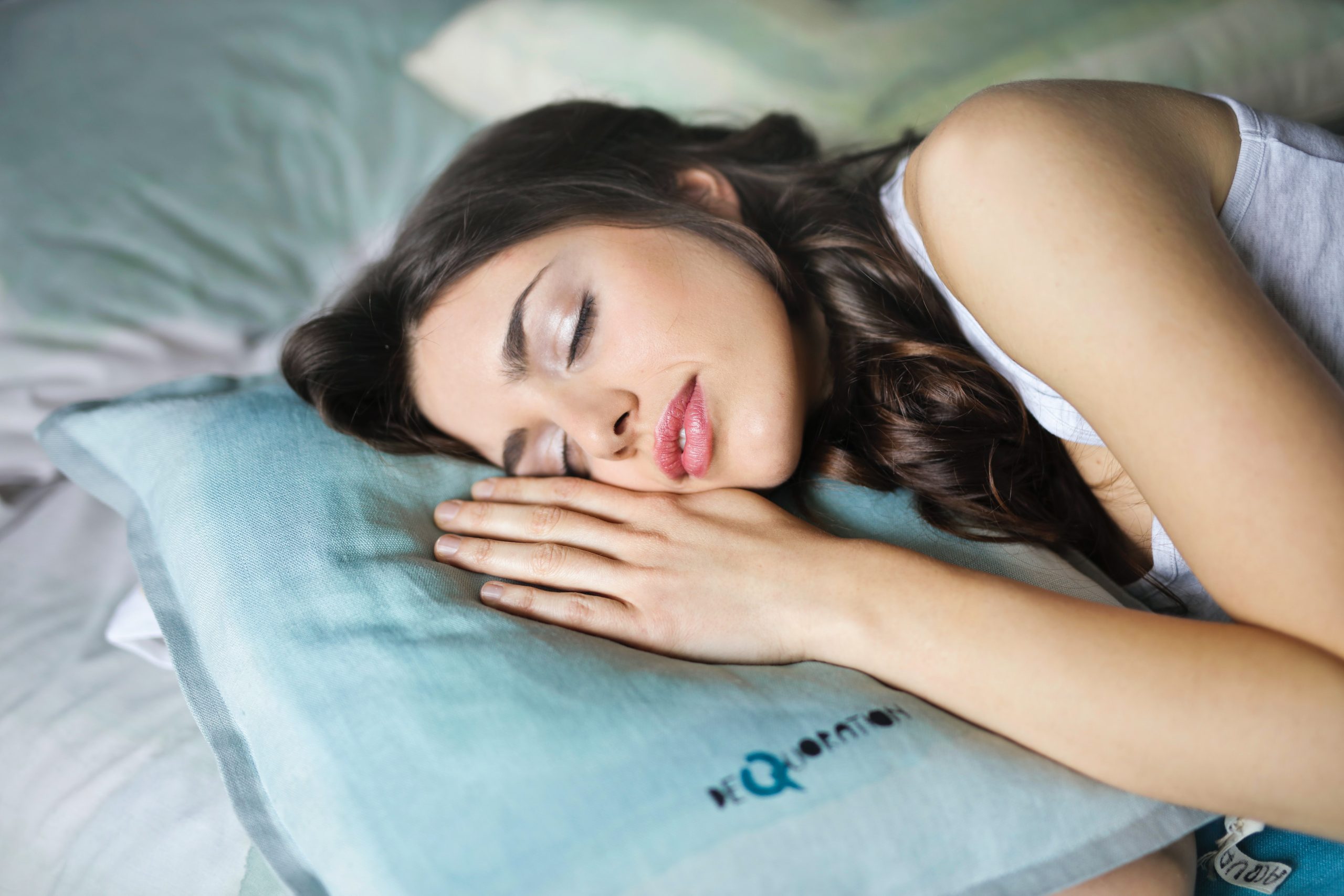It’s 2:00 AM and you can’t sleep. Your mind is racing with thoughts trying to make sense of what happened during the day and what needs to be done tomorrow. You’re wondering if overstuffing your bedding with an obscene number of pillows will solve your alignment problems and help you get the precious sleep your body so desperately needs.
Before you start guilt-tripping yourself for not being able to get enough restful shut-eye last night. Listen, you’re not alone. The sleep disorder epidemic is a growing problem in our society.
What You Need To Know
The National Sleep Foundation reports that 50-70 million adults in the United States suffer from a sleep disorder. If your nights are filled with scrolling through Instagram or thinking about the perfect thing you could’ve said to your high school sweetheart – it can have serious consequences for both physical health as well mental well-being in the long run.
But just because you’re not alone doesn’t make it any easier to deal with. Even if all your attempts have failed miserably – there are other ways this could go; maybe one night soon (or maybe right now) everything clicks into place—you finally find out how restful deep sleep feels without any waking intervals between cycles through REM phases–and then life becomes more pleasant, more productive.
And while there is no overnight solution, it is possible for your soul to find redemption, it could be the key to a happier you. It’s not just your problem—you may have been guilty of one or more of these 5 unforgivable crimes against snooze time:
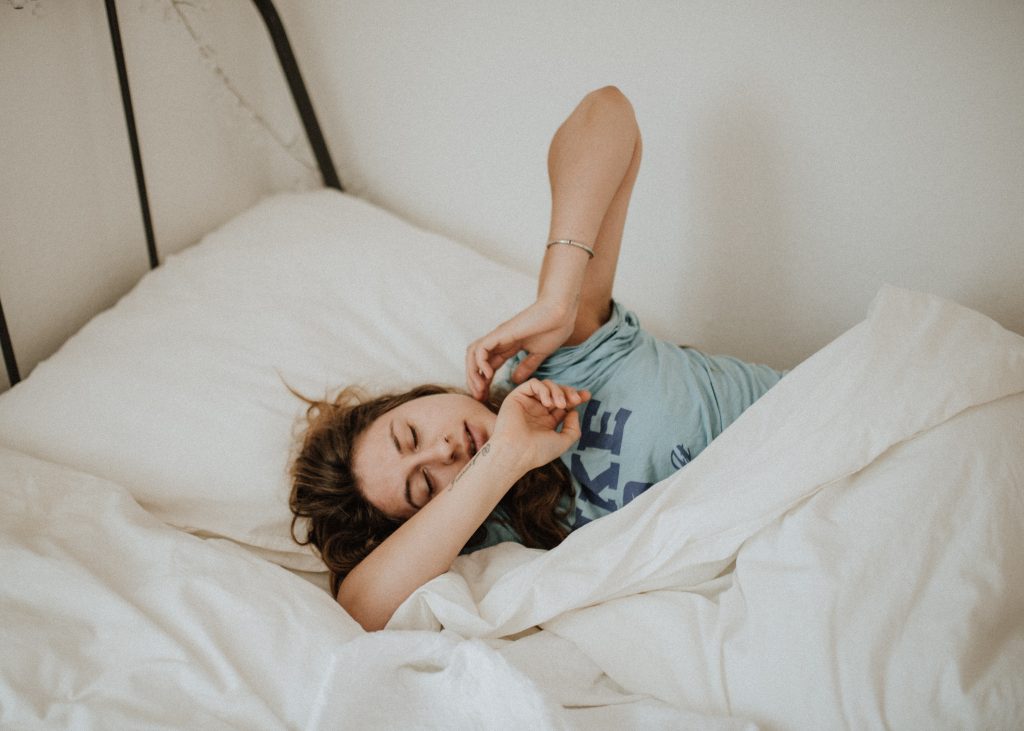
Sleep Crime #1 – You’ve Sold Your Soul To Caffeine (And Sugar)
While it may seem harmless enough to indulge in your morning cup of joe, or late afternoon snickerdoodle cookies, caffeine and sugar can wreak havoc on your sleep cycle. Both substances act as stimulants that promote wakefulness and make it difficult for you to fall asleep at night.
If you’re having trouble sleeping, it’s important to be aware of the caffeine and sugar content in your diet. Caffeine and sugar are both stimulants that can prevent you from falling asleep at night.
Did you know that caffeine can stay in your system for up to 8 hours? So, if you’re drinking a cup of coffee at 3 pm, there’s a good chance it will still be affecting you when you hit the pillow at 11 pm.
Try to cut off your caffeine intake by 2 pm at the latest and opt for healthier snacks like fruit or nuts that’ll keep you energetic throughout the day. If you absolutely can’t live without your afternoon cup of coffee, consider switching to decaf, which can satisfy your cravings but without the energy boost.
CBG, a little-known cannabinoid, is becoming a popular alternative for its energy-boosting effects that are often compared to a caffeine rush. Unlike THC, CBG does not have any psychoactive effects.
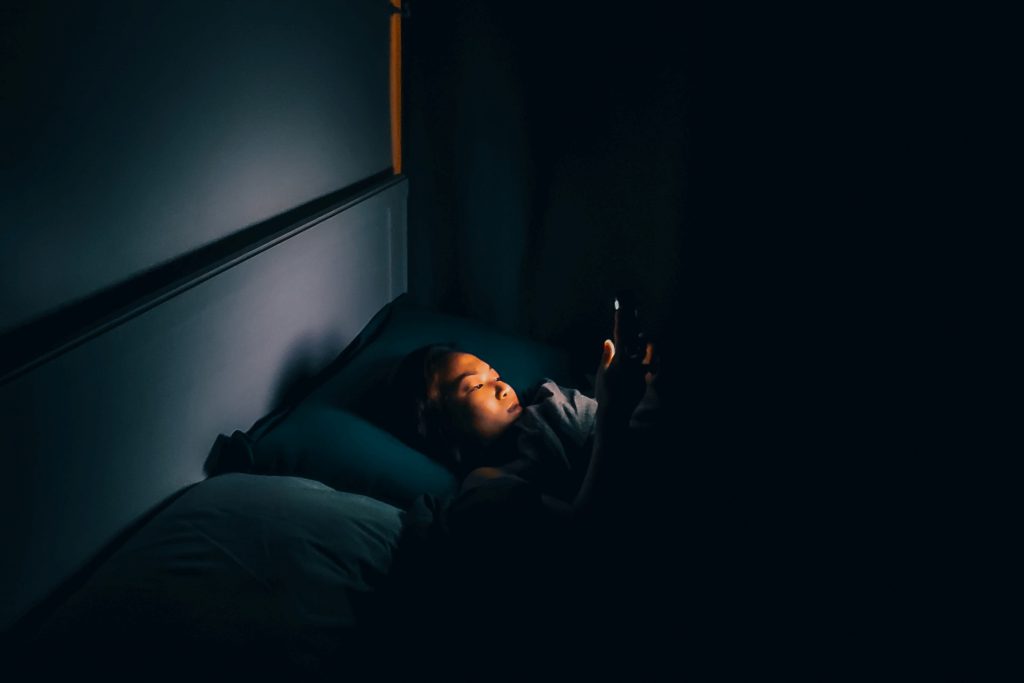
Sleep Crime #2 – You’re A Slave To The Blue Screen
It’s nearly impossible to get through the day without using some form of technology. We’re constantly glued to our phones, laptops, and TVs—all of which emit a blue light that can cause serious disruptions in your sleep cycle.
Blue light exposure inhibits the secretion of melatonin, a hormone that tells our bodies when it is time to sleep.
The blue light from your devices can be seriously disruptive to your sleep. It can delay the onset of sleep, reduce total sleep time, and decrease the quality of our sleep.
If you’re having trouble sleeping, try to avoid using technology screens for at least an hour before bed. If you can’t resist the temptation, try using a screen protector or software that filters out the blue light.
An easy way to reduce the impact of blue light on your sleep quality is to invest in a pair of blue light-blocking glasses, which can be purchased online or at most health and wellness stores.
You can also install a blue light filter app on your phone, that will gradually filter out the blue light from your screen as the day goes on.
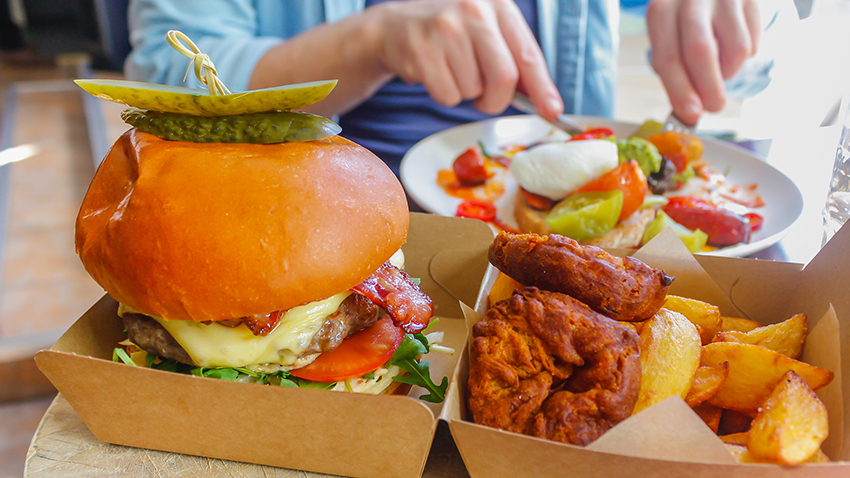
Sleep Crime #3 – Eating Too Much Before Bed
Ever notice how hard it is to sleep if you’ve just eaten a large meal?
Eating big meals before bedtime can cause indigestion and heartburn, which in turn can disrupt your sleep. If you’re prone to heartburn at night, it’s best to avoid eating heavy or spicy foods for dinner.
If you’re getting enough sleep but still wake up feeling exhausted, this is probably the reason.
Your digestive system doesn’t fall asleep just because you do, it stays awake for around 3 hours resulting in insufficient rest even though you’ve slept for 8 full hours.
Digestion is vital while you sleep, so consider eating heartier meals earlier in the day and lighter options closer to bedtime that are easy on your stomach.

Sleep Crime #4 – You’re Stressed Out
Stress can really mess up your sleep! If you’re stressed, it’s harder to fall asleep and you’ll probably wake up more often during the night. And if you don’t get enough sleep, that makes you even MORE stressed out!
With the right strategies and tools, you can find relief and get your sleep back on track and turn that stress into peace and harmony. You can:
● Try deep breathing and meditation
● Take a warm bath
● Read a book to refresh your mind
● Listen to soothing music
And don’t forget to get regular exercise, it can help release those “feel good” endorphins, which will help you sleep better too!
Don’t forget the right supplementation with the right multivitamins and a healthy diet.
CBD and CBN are becoming more and more popular for sleep and people report that this powerful combination helps people fall asleep faster and stay asleep longer.
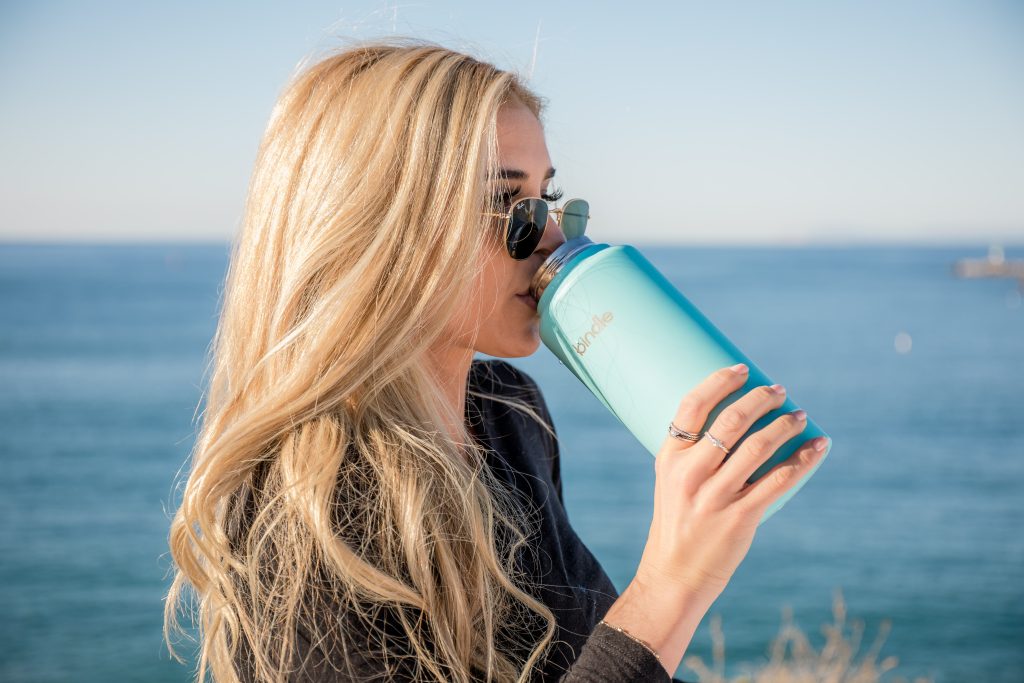
Sleep Crime #5 – You Forget to Hydrate
We’ve all been suddenly awoken in the middle of the night by a parched mouth. We chug a quick glass of H2O, but by then it’s too little too late and we can’t fall back asleep. Then we spend the next few hours berating ourselves for not being more hydrated earlier.
But dehydration doesn’t just stop at a dry mouth. In fact, 73% of the human brain is water, so when you don’t drink enough H2O, your cognitive functions start to decline. This can result in problems like trouble concentrating, feeling cranky, and being extremely tired.
Not surprisingly, dehydration can also have a major impact on your sleep. When you’re dehydrated, your body has a harder time regulating its internal temperature.
As a result, you may find yourself feeling too hot or too cold at night, making it difficult to get comfortable and doze off.
Dehydration can also lead to headaches and muscle cramps, both of which can disrupt your sleep. And if your body doesn’t get enough water, it will secrete less Melatonin – the hormone that tells you it’s time to sleep.
Fortunately, salvation is easy! Just be sure to drink plenty of fluids throughout the day, and a glass of water before you turn in for the night can help you in sleeping soundly through the night.

